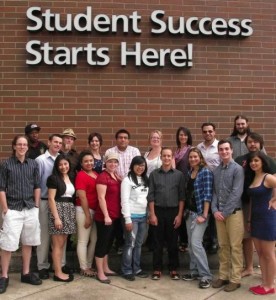
1. What led you to do this research?
In the U.S., the College for All movement produced a cultural expectation that American youth will go to college. Yet millions of students do not earn a degree, and many students beginning at community colleges spend years making little or no progress toward a credential. Existing research about how disadvantaged students’ goals change over time largely relied on assumptions about the social-psychological process entailed in falling short of college aspirations. We wanted to understand the experiences of students who “hold steady,” continuing to plan a degree despite hitting roadblocks along the way.
2. What should everyone know about what you found?
While policy debates about the importance of college largely focus on returns in the labor market, our respondents also understood college-going as having moral and expressive value. Of course, seeking a degree reflects the pragmatic pursuit of middle-class jobs and lifestyles. However, the women we studied also used college plans to respond to a cultural imperative to strive and be ambitious. It is critically important to have strong community colleges that offer effective institutionalized pathways to realize ambition and provide students with socially-recognized identities.
3. What are you going to do next on this topic?
Kelly is interested in how young adults abandon their college aspirations. Holding steady provides a form of moral equity for disadvantaged students. Those who let go leave behind a valuable source of identity and worth. Nicole will study how potential returners make decisions about re-enrollment. As for-profit institutions and distance learning technologies diversify programs available to returners, busy adults have new options to choose from. How do these choices affect their chances for success?
You can read the full articles here:
Kelly Nielsen, “Fake It’til You Make It”: Why Community College Students’ Aspirations ‘‘Hold Steady’. Sociology of Education, 2015.
Nicole M. Deterding, Instrumental and Expressive Education: College Planning in the Face of Poverty. Sociology of Education, 2015.




Comments